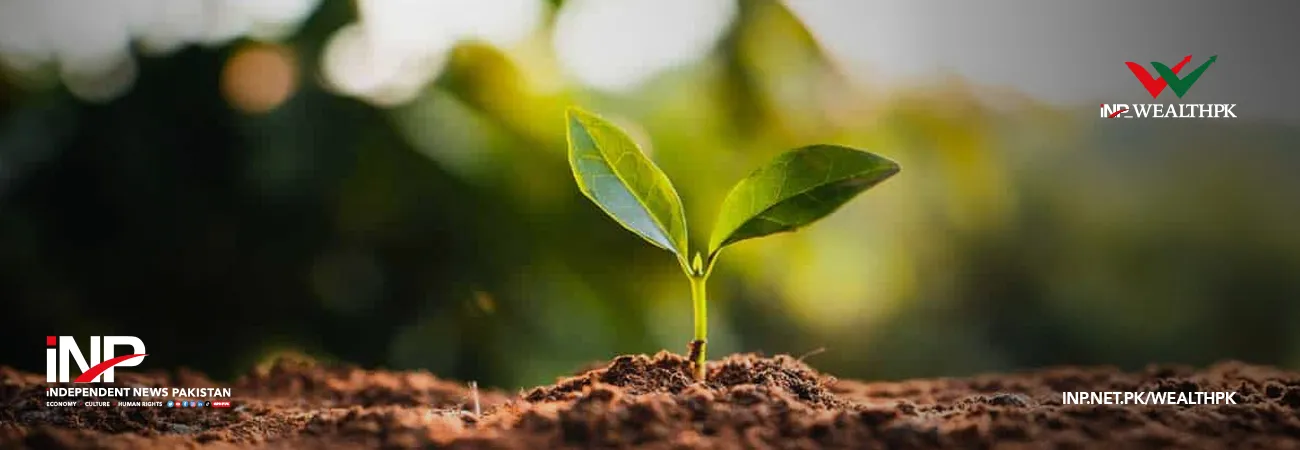INP-WealthPk
Amir Saeed
Pakistan’s green transition requires local innovation, workforce development, and robust policy frameworks to achieve energy security and economic sustainability effectively.

Talking to WealthPK, Shafqat Hussain Memon, an energy researcher at the Mehran University of Engineering and Technology (MUET), said Pakistan faces a critical trilemma of energy security, environmental sustainability, and economic stability, necessitating a decisive shift toward a green economy.
According to Memon, this transition hinges on local innovation, indigenous technology, and workforce development as key pillars. “Currently, Pakistan ranks 113th out of 120 on the World Economic Forum's 2024 Energy Transition Index. The country heavily relies on imported technologies and foreign expertise, leaving its economy vulnerable to global price volatility.’’
“Despite the Alternative and Renewable Energy (ARE) 2019 policy emphasizing local manufacturing and technology transfer, absence of a concrete implementation plan has hindered progress. A clear strategy with defined targets for local talent development and innovation is urgently needed,’’ he said. Memon pointed out that workforce development remains a significant challenge.
With 64% of Pakistan’s population under 30 and millions of unemployed youths, the country has untapped potential for green skills development. “Many workers in traditional sectors like construction and automotive possess transferable skills but lack structured pathways for transitioning into renewable energy roles.
Strategic re-skilling programs could enable electricians and HVAC technicians to shift to the solar PV or wind turbine maintenance.’’ “Globally, green skills are reshaping industries, creating millions of jobs in renewable energy, sustainable transport, and circular economies. However, Pakistan has yet to capitalize on this shift.
The demand for expertise in areas such as AI-driven energy systems, smart grids, energy modeling, and sustainability is rising. Without immediate investment in advanced education and training programs, Pakistan risks missing out on the economic benefits of the global energy transition,’’ he emphasized. “Pakistan's energy transition relies on technical expertise, local innovation, and robust policy measures.
By investing in human capital and advancing technology, the country can achieve energy security, independence, and climate resilience.’’ “This requires sustained investment in green skills from the public and private sectors, supported by updated academic curricula, CSR-driven capacity-building programs, and targeted government initiatives.
International donors should prioritize developing local expertise over infrastructure funding to ensure a locally-led transition,’’ he suggested. Talking to WealthPK, Farhan Wahid, a green finance researcher at the Quaid-e-Azam University, Islamabad, stressed the importance of workforce development in driving Pakistan’s green economy. He said the country has an opportunity to capitalize on the growing global demand for green skills in industries such as renewable energy and sustainable transport.
Green economy is not a distant dream but a present reality, and Pakistan is positioned to benefit immensely from the global shift. However, for this to happen, the country needs to ensure that the workforce is properly prepared. He called for greater investment in training programs, particularly in high-demand fields such as solar energy, wind energy, and energy storage.
Moreover, Wahid emphasized the role of public-private partnerships in fostering a green skills ecosystem. He urged local industries to collaborate with educational institutions to create curricula that align with the needs of the green economy. This will not only equip the youth with relevant skills but also encourage innovation and entrepreneurship in renewable technologies.
“As the demand for expertise in the emerging fields such as AI-driven energy systems, smart grids, and sustainability, grows, Pakistan's failure to invest in these sectors could lead to significant economic losses. Without urgent investments in advanced education, training, and research, Pakistan will miss out on the economic potential of the global green energy shift.’’
Credit: INP-WealthPk













